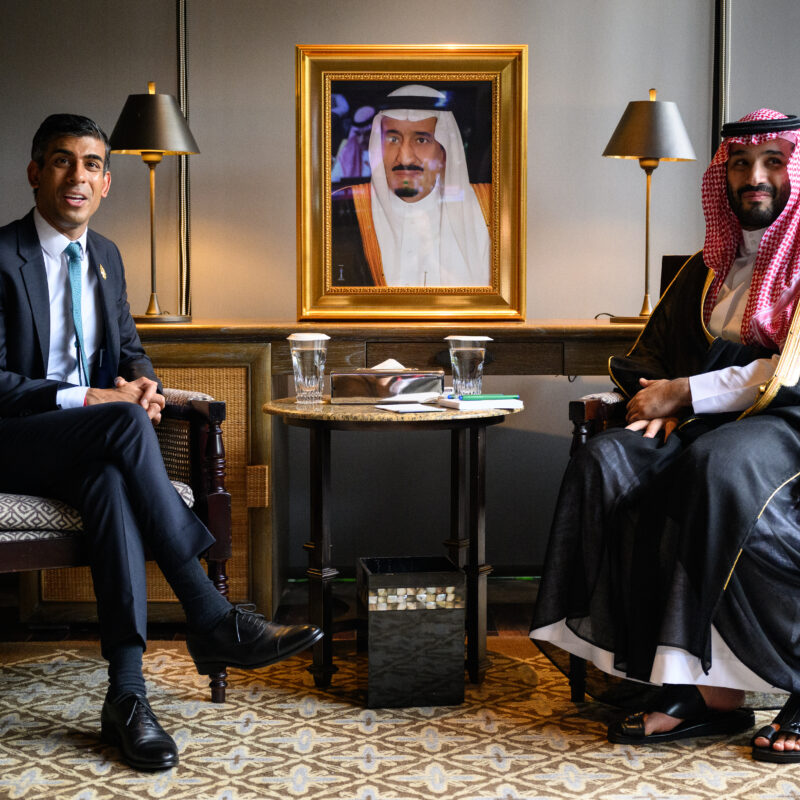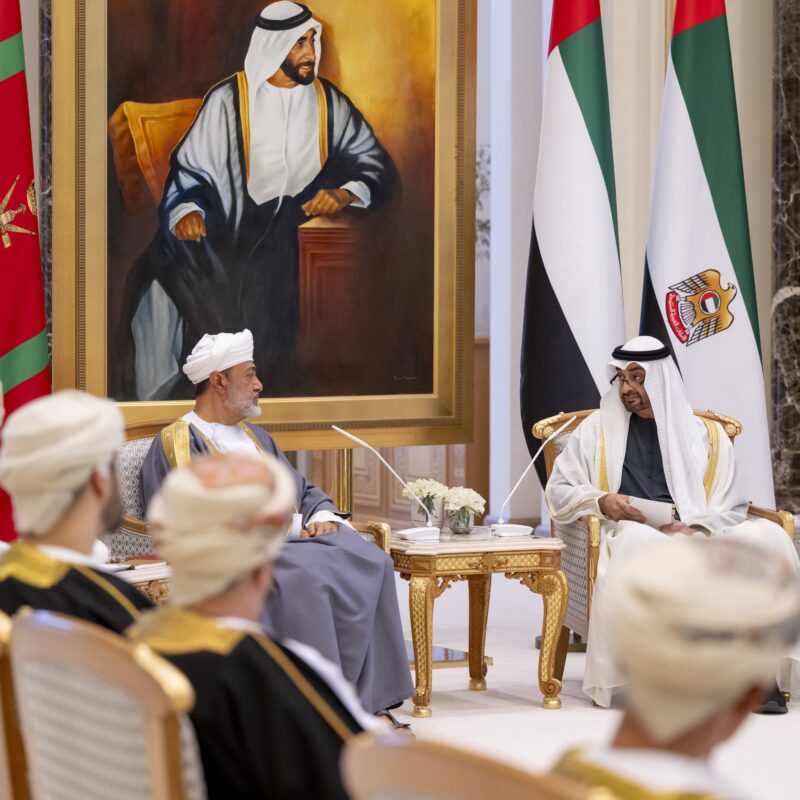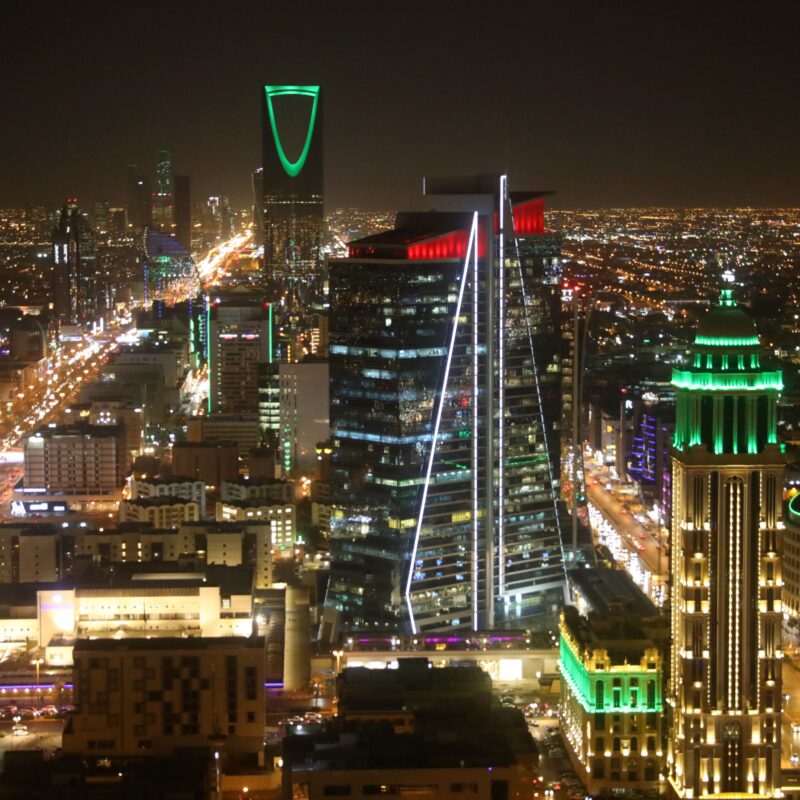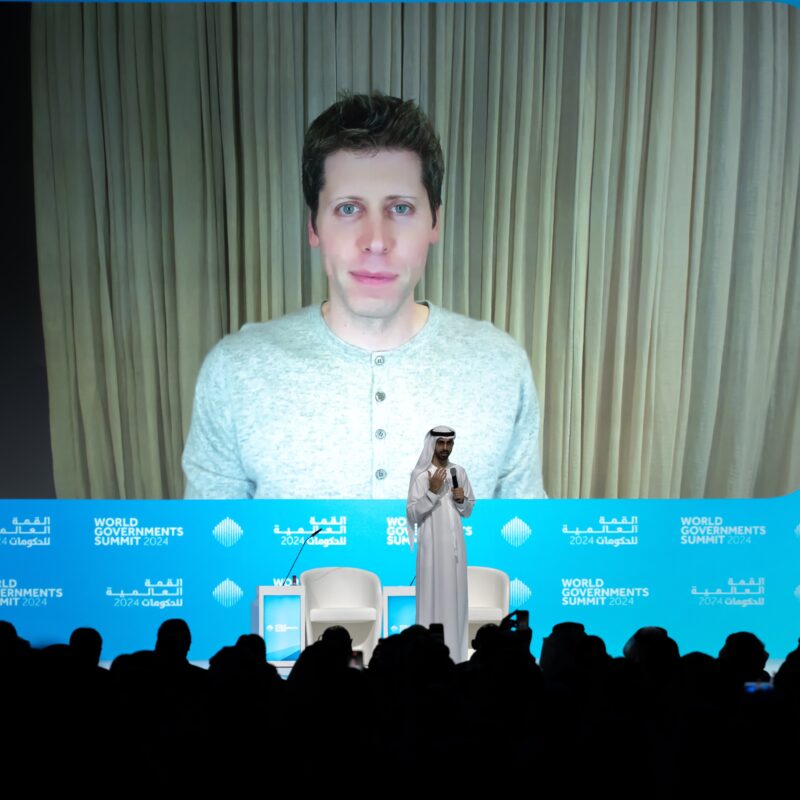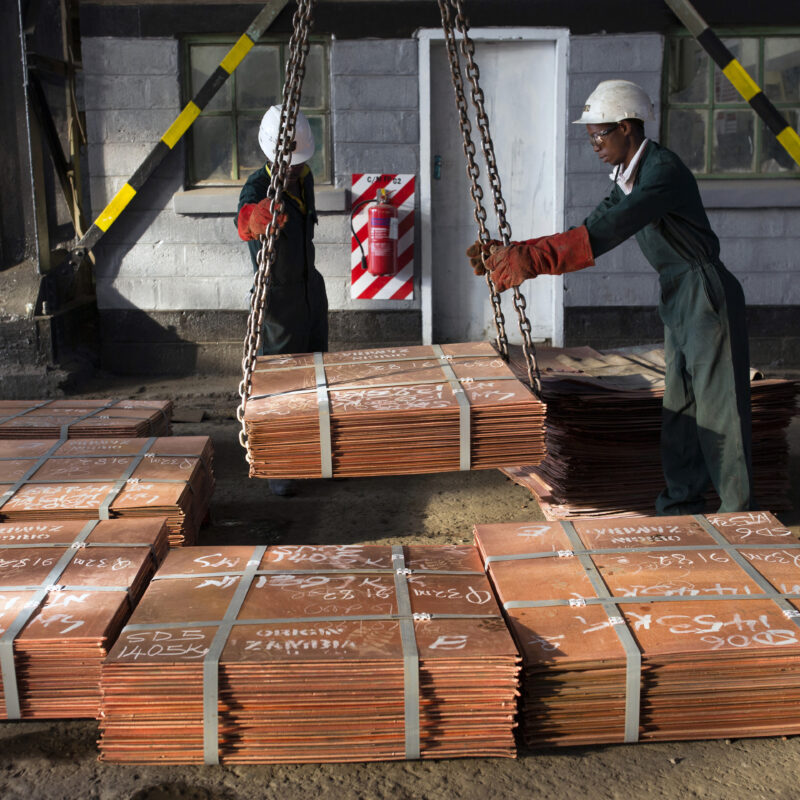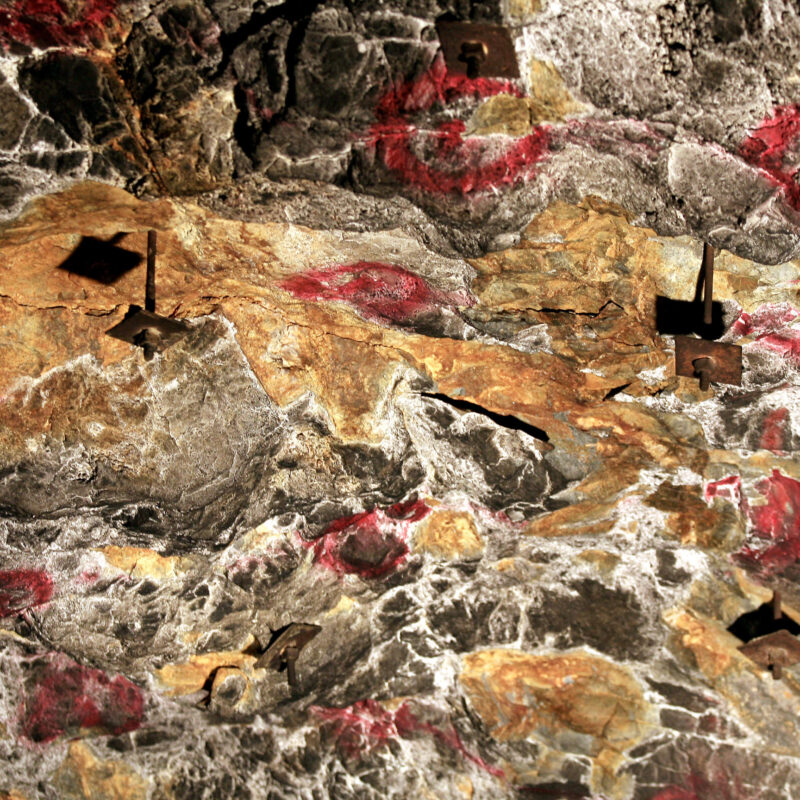Catching up with Yossi Vardi, wisecracking patriarch of Israel’s startup culture
At his DLD tech festival, the 80-year-old entrepreneur talks with The Circuit about how to survive the drying up of venture capital and the hype about AI
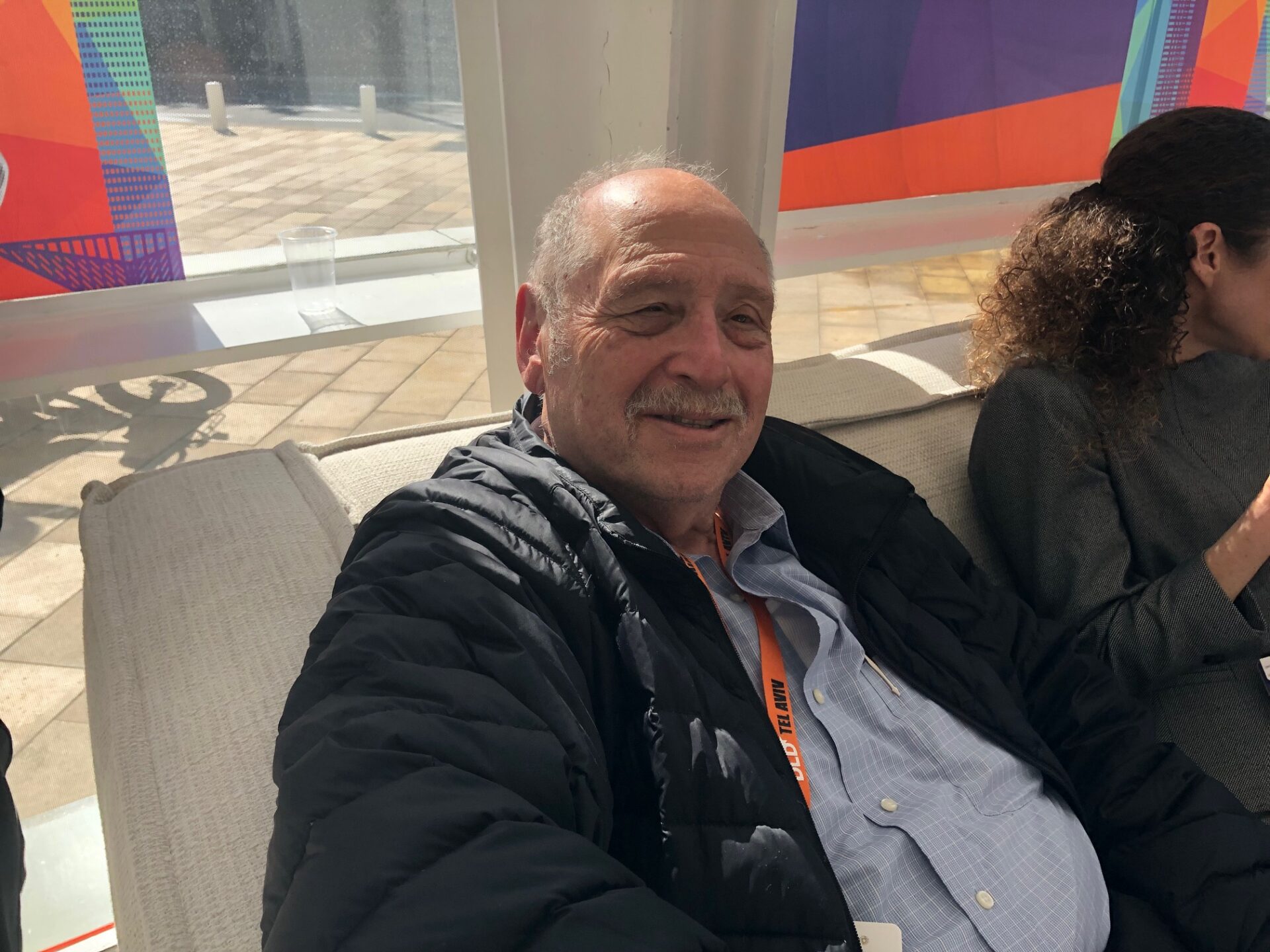
JONATHAN FERZIGER
Yossi Vardi holds court in lobby of Habima theater at DLD Tel Aviv Innovation Festival.
Leaning back on a white couch in the lobby at Tel Aviv’s Habima national theater, where he was hosting one of Israel’s top technology conferences, Yossi Vardi gets ready to shmooze. At 80 years old, he dresses in a scruffy black winter jacket and positions himself at the foot of Habima’s grand curving staircase.
Inevitably the investors, CEOs and government ministers rushing to lead panel discussions at last week’s DLD Tel Aviv Innovation Festival catch his eye and pause to say hello. In Hebrew, English and Yiddish, Vardi trades quips with them – many of whom consider him their mentor – basking in his reputation as the adorably ornery grandpa of Israel’s startup culture. He doesn’t always remember people’s names so he asks them to draw close and examines their conference badge. One budding entrepreneur wouldn’t leave after a two-minute pitch, and Vardi told him his idea wasn’t worth listening to.
Over the arc of Vardi’s career, which took him from procuring crude for the energy-starved nation in the 1970s as chairman of the Israel National Oil Company to selling ICQ, the first widely used instant messaging software that his son Arik created with three friends, to AOL in 1998 for $407 million, Vardi has been a leader in Israel’s tech world. He has since led, invested in or helped build more than 70 startups, and is in demand as a speaker around the world about how Israel earned its name as the Startup Nation. He was the recipient of the Prime Minister’s Award for Life Achievement.
In between Vardi’s brief conversations with roughly two dozen conference participants heading up the stairs, The Circuit interviewed him about the difficulty of raising venture capital, investor concern about Israel’s judicial reforms, normalization with Arab countries, artificial intelligence and what makes a good startup entrepreneur.
This interview has been edited for clarity and conciseness.
The Circuit: How do companies survive this period when investment capital is drying up?
Yossi Vardi: First of all, they need one very important thing, which is luck. The second thing is money. Money has been disappearing very quickly and therefore some companies will perish and some companies will resolve this by being acquired by other people. We saw it in 2000, we saw it in 2008 to a lesser degree and we’re going to see it again now. It’s not a pleasant situation, but this is business, this is the cycle. Companies that were lucky enough to do a financing round in the few months before the latest crisis are in a better position. It also depends on the financial responsibility of the money managers. They have to cling to their cash because cash in this situation is like oxygen. You cannot fake it. You can’t fake having money when you don’t have money.
Israeli startup executives are marching in the streets against the government’s proposed judicial reforms and some companies are threatening to take their money out of the country. What impact does that have on foreign investors?
We are now in a very, very sensitive situation. Some people say it will be disaster, while the government says everything is wonderful. We have to stare directly at the crisis and figure out how to resolve it, because the question is not who is right and who is not right. Suppose the worst scenario appears and we lose the tech industry. Some people will say we are sorry. But it’s too serious to just say we’re sorry. We are playing here with a nuclear economic situation. I really hope that we get sober and learn how to reduce the risks. There is a lot at stake. If things look risky here, people will say let’s hedge our risk and create companies in the United States or in France. They are going to do it. Not in order to anger the government, not in order to make a political statement. It’s just to have a prudent investment. This is how markets work and we should all become adults and realize it. It would be a pity to see this magical place get hurt.
What impact do the normalization agreements with the Gulf states have on investment?
You have to remember that the two fundamental agreements Israel has reached with Arab countries are with Egypt and Jordan, which stopped the killing of people. This is something holy. We must arrive at some kind of arrangement with the Palestinians. I think the Abraham Accords are important. They enhance the legitimacy of Israel in the eyes of other members in the region. So they’re a segue for us to do more things. In this respect the Abraham Accords are important and I hope they will develop further. When the economic situation of the world is good, we get a wonderful flow of funds. I don’t think business with the Gulf states is going to tilt the needle, but it’s very welcome.
How do you distinguish the hype from the reality in all the news about artificial intelligence?
Everything is hype because most of the world doesn’t run on facts. The world runs on stories. Like people don’t have to learn to write anymore. ChatGPT will do all the writing for them. And then after the hype, there is a reality check and people get sober. For now, AI may be hype but it’s very important. Nobody knows yet what it will become.
What are the characteristics of successful Israeli entrepreneurs?
The most important thing is entrepreneurs who are passionate – people who persevere and are committed. Number two, you have to have talent, which we have here in abundance. Three, you need people who are decent, who act like a mensch, who are honest. Fourth, you need people who are curious so they will expand the basis of their general knowledge and have references for future things that we don’t even know about today, what we used to call renaissance people. People with culture and ideas, not just tech. Tech is good but if you want to use tech, you have to have a wider view.
What developments in Israeli tech are you most excited about?
It’s not about this technology or that technology. It’s about something within Israeli society, within the character of the people who create this very special place. I think all these things stem from something much more fundamental, some kind of a cultural DNA. It goes back hundreds of years. These are people who wake up in the morning as a community, willing to take responsibility, willing to take charge, willing to stand for something. Israelis have a set of characteristics that can be regarded as negative in certain areas, like being a bit aggressive or cutting corners. But when you come into a startup environment, all of a sudden, these deficiencies turn into advantages.
